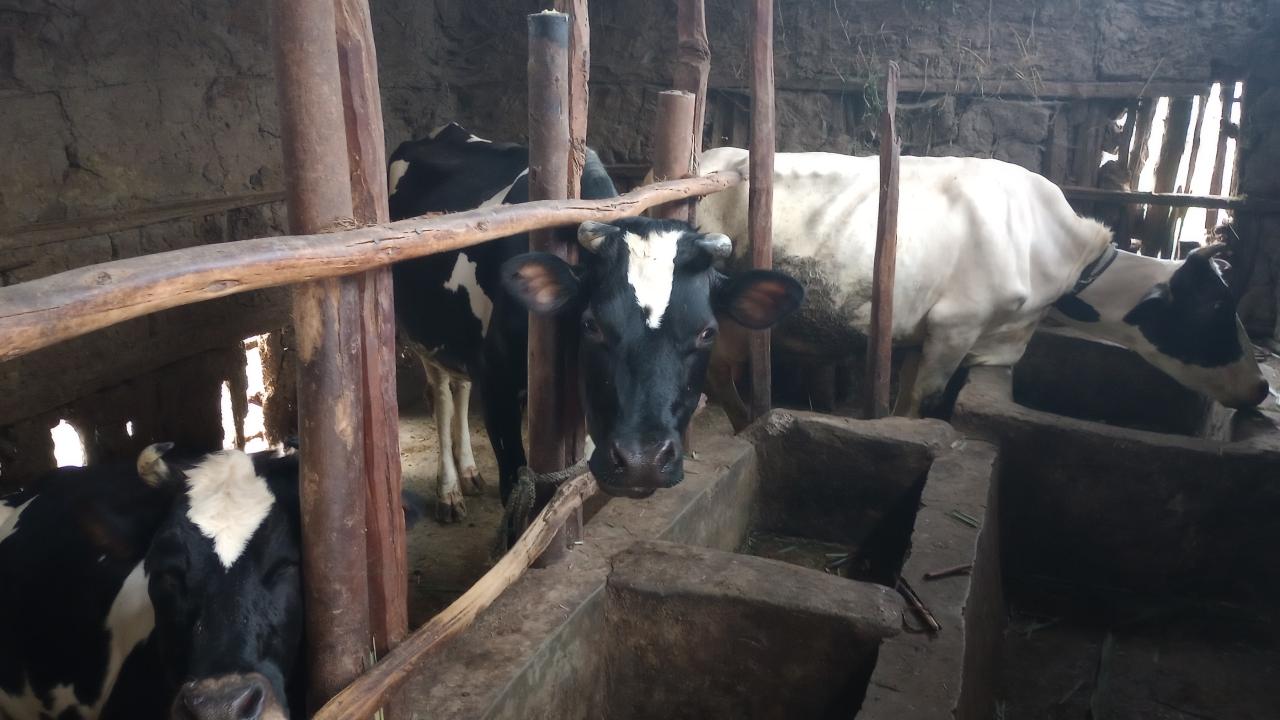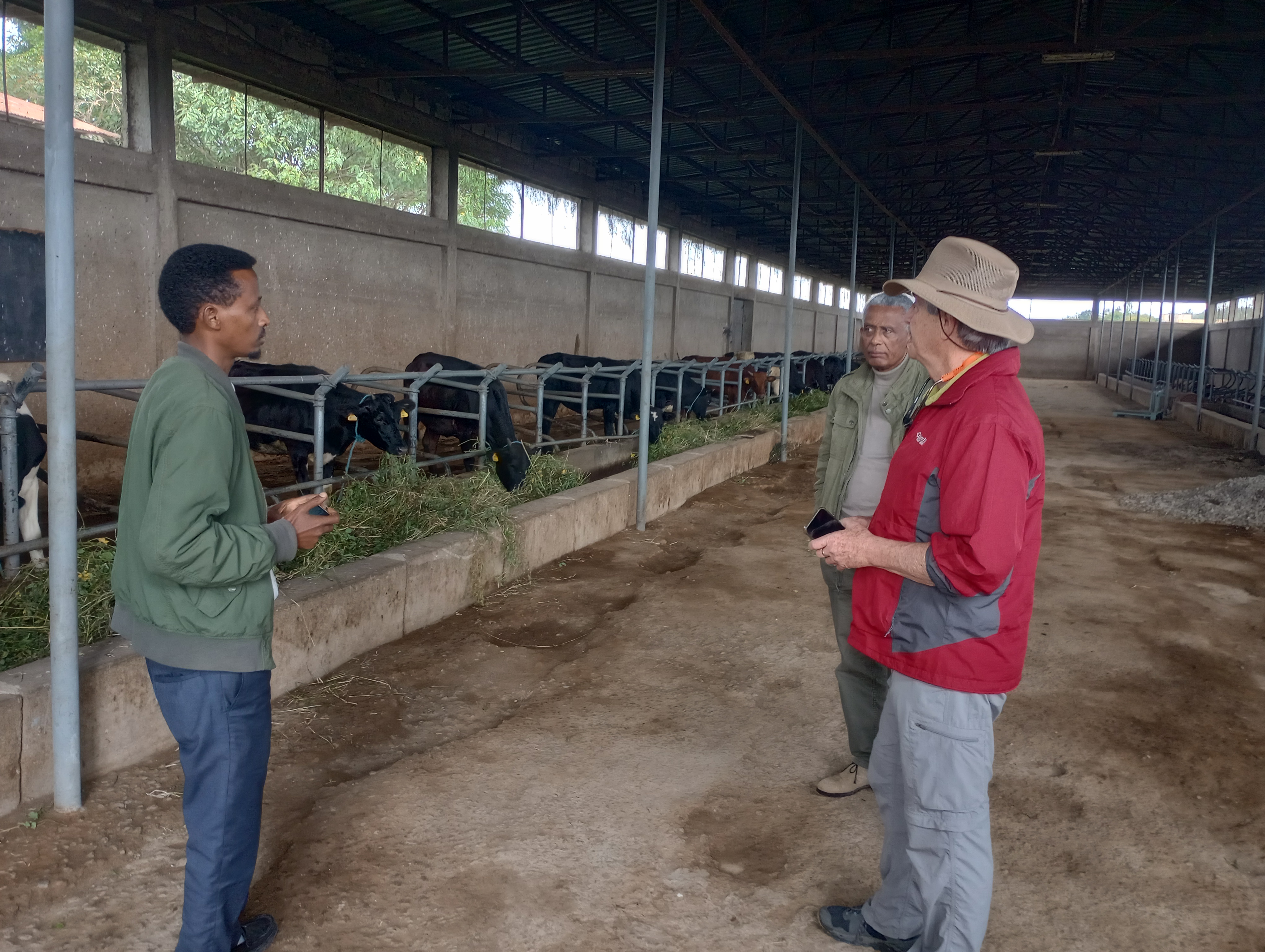
Mobile App Seeks to Reduce Dairy Methane Emissions in Africa, Asia
International Team Led By UC Davis Centered on Small-Scale Farmers
A team of international researchers led by University of California, Davis, released a mobile tool recently that will help small-scale farmers in Asia and Africa craft the right diet for cattle to increase yield and productivity, helping to reduce methane emissions.
Demand for cattle milk and meat in Africa is growing each year. High costs for feed without adequate nutrients reduces productivity and contributes to emissions of methane, a potent greenhouse gas.
RationSmart aims to change that by providing tailored, nutritious diet recommendations to small farmers that helps cattle produce more milk, while reducing the need for so many animals, lowering the farm’s carbon footprint.
Ermias Kebreab, an animal science professor and associate dean of Global Engagement at UC Davis, demonstrated how to use the tool during the Sustainable Animal Agriculture for Developing Countries conference in Vietnam earlier this month.
“We see tremendous potential in this platform — it empowers farmers to make data-driven decisions that can improve their productivity and livelihoods, while also indirectly reducing emissions from livestock systems,” Kebreab said. “The feedback was overwhelmingly positive.”

Building feed libraries
Similar feed tools are used in the United States and Europe but don’t have enough information to be specific to Africa and Asia. RationSmart team worked with partners to build feed libraries in 20 countries so that smallholder farmers could access local feed options, said Shimels Wassie, a UC Davis sustainable livestock system specialist and program manager for the Global Methane Hub, which funded the project.
“What the dairy farmers actually feed to their animals is not optimal enough to increase milk,” Wassie said.
RationSmart tool produces a tailored diet, factoring in a cow’s age, weight and other details, and the results could help decrease costs by 20%.
“The tool will give them an idea of how to reduce costs because it will optimize the milk yield and also reduce the cost of production,” Wassie said.
The tool dovetails with other global efforts to reduce emissions. While working on RationSmart, Wassie contributed to a roadmap strategy developed by Livestock Data for Decisions, or LD4D, and the Climate and Clean Air Commission that outlines ways to support digital technologies and solutions to reduce methane emissions from livestock.
“We’re excited to keep building on this momentum as we continue developing the tool in collaboration with partners like LD4D,” Kebreab said.
Maria Helena De Oliveira and Mark Bell from UC Davis and researchers at Hawassa and Haramaya universities in Ethiopia, Digital Green, International Livestock Research Institute, Agricultural Research Institute for Development in Cameroon and several countries in Southeast Asia contributed to the development of the tool.
Media Resources
- Ermias Kebreab, UC Davis Department of Animal Science, ekebreab@ucdavis.edu
- Shimels Wassie, UC Davis Department of Animal Science, swassie@ucdavis.edu
- Emily C. Dooley, College of Agricultural and Environmental Sciences, ecdooley@ucdavis.edu